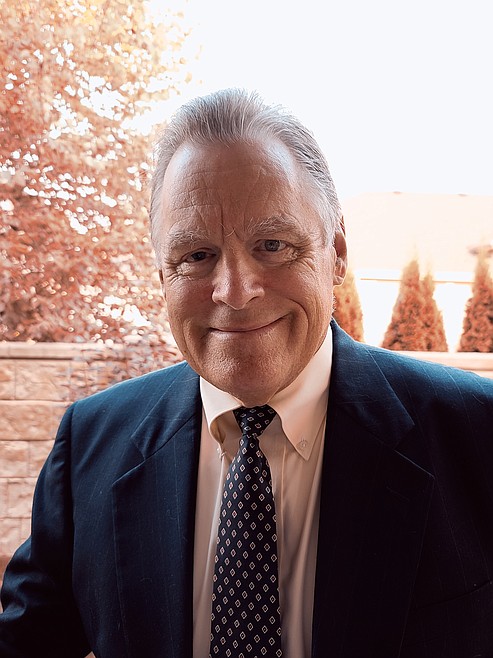Op-Ed: Wasden warns against activist for AG
If you’d like to pass along a compliment to Attorney General Lawrence Wasden, just tell him that he’s boring.
Wasden is not a boring person by any means. In his personal life, there’s nothing “boring” about raising four kids and having 13 grandchildren, but there’s not a lot of flash with how he approaches his position as attorney general.
Talking with Wasden, he’ll use a few baseball metaphors. He views himself as an umpire who calls balls and strikes. If you compare his role to a big-league pitcher, you’d say that Wasden throws straight pitches — not too fast and not too slow, just straight and across the plate.
A pitcher with that kind of “stuff” wouldn’t get past the first inning in the majors, but Wasden isn’t worried about striking out batters in his job. The steady approach has worked for him for 20 years, and he’s going for another four-year term in May’s primary election.
“One of my opponents asked if the attorney general could throw a curve ball,” Wasden said. “Why would you want an attorney general to throw a curve ball?”
Wasden is running against two opponents in the GOP — former Congressman Raul Labrador and Coeur d’Alene attorney Art Macomber — both of whom would like to add a few other pitches to the arsenal. Maybe a few sinkers, sliders and knuckle balls.
Both have talked about different ways of taking on President Biden’s administration, in the interest of protecting Idaho’s sovereignty. Wasden discards the activist approach.
“We don’t like activist judges because they are trying to make the law,” he says. “The attorney general is not a policy maker. That’s for the Legislature to do and for the governor to propose.”
An attorney general who has been in office for 20 years isn’t going to make everyone happy, of course, and Wasden has his share of detractors — both inside and outside of the Legislature. But Wasden says his priorities do not include winning popularity contests.
“One of the allegations (from some legislators) is that ‘he does not represent us.’ The answer is I don’t represent any individual,” he says.
As Wasden views it, his role is to interpret laws as they relate to the state Constitution — not to tell legislators what they want to hear. It has gotten him into political hot water at times, but Wasden says it comes with the territory.
“When you stand on the statehouse steps, you take an oath to uphold the Constitution of the United States and Constitution of Idaho to fulfill your duties under the law,” he says. “You’re not a liberal, you’re not a conservative or a moderate. You’re not a Republican, a Democrat or libertarian. Your job is to defend the Constitution as it’s written and not how somebody wants it to be written.”
Wasden came under fire from Republicans after the 2020 presidential election for not signing on with the Texas lawsuit contesting the results in battleground states. Wasden’s opponents have said they would have joined with that lawsuit.
“Some people talked about how terrible it was that I didn’t join with that suit, but people understand once I explain it,” Wasden said. “Texas filed a lawsuit, not against the federal government, but was suing sister states who were exercising their sovereign power over federal elections. If Texas can sue Pennsylvania on how that state can exercise its sovereign power, then California can sue us. And so can Washington, Illinois and New York. Would they love to sue us? You darn right they would — over water guns and abortion.”
For Wasden, who is banking on establishment support, this election challenge may be the toughest of his career. Labrador, who has made a career from bucking the establishment, has plenty of name recognition as a result of serving four terms in Congress and running for governor in 2018. Macomber, making his first run for statewide office, thinks he can be more than a spoiler.
As Wasden sees it, these are the stakes:
“If you have an activist in this chair, you become unhinged from the law — a person who is not following the rule of law, but the rule of political whim,” he says. “This position is critical to the function of state government — not because of me, but because of what this office is. What this office is, and what it represents, is the stability as to what the law is and I will answer to that law.”
And, of course, he will answer to the voters in May.
• • •
Chuck Malloy is a longtime Idaho journalist and columnist. He may be reached at ctmalloy@outlook.com.

